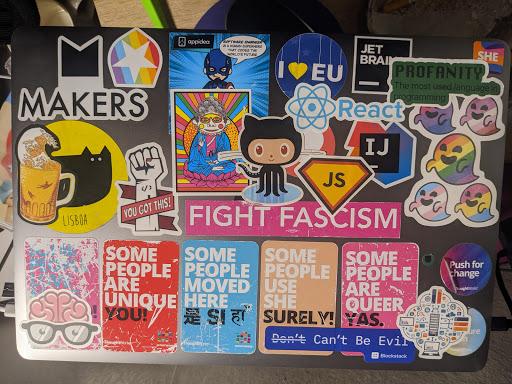Diversity, equity and inclusion
Ask a name - add a pronoun


 Image of Author's laptop, covered in diversity, positivity and pronouns stickers
Image of Author's laptop, covered in diversity, positivity and pronouns stickers
Disclaimer: The statements and opinions expressed in this article are those of the author(s) and do not necessarily reflect the positions of Thoughtworks.
